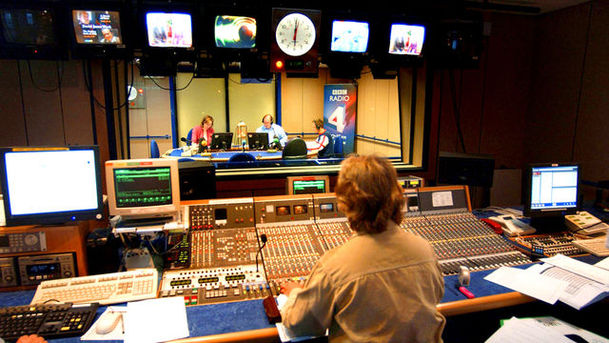Today - 22/10/2009

Presented by John Humphrys and Sarah Montague. Royal Mail staff begin the first of two 24-hour walkouts this week, in an increasingly bitter dispute over modernisation. Paul Tolhurst, operations director of Royal Mail, explains why talks broke down. The appearance of BNP leader Nick Griffin on tonight's Question Time panel has clear parallels with the first appearance of far-right French politician Jean-Marie Le Pen, leader of the Front National, on a French TV programme in 1984. Dr Jim Shields, Associate Professor in French Studies at the University of Warwick, explains how Le Pen used the show to gain the acceptability that had eluded him previously. The White House has indicated it is to limit the bonuses and other remuneration given to the executives who run companies which have been bailed out by the American taxpayer. Former Wall Street banker William Cohen, author of House of Cards: How Wall Street Gamblers Broke Capitalism, examines the implications. The Historical Thesaurus of the Oxford English Dictionary, published today, has taken more than 40 years to compile. It is twice the size of Roget's Thesaurus and contains more than 600,000 words. Professor Christian Kay, lead author of the dictionary, explains why it has taken so long. It is 25 years since the world learned of the terrible famine in Ethiopia. Michael Buerk's television news reports were the inspiration for Bob Geldof's fundraising efforts, including Live Aid, and all those pledges that it would never be allowed to happen again. But our reporter Mike Wooldridge, who had actually broken the story of the famine on this programme 48 hours earlier, has been back to Ethiopia to find that it is happening again. Breakfast with Socrates, a new book by Robert Rowland Smith, explores the hidden philosophy of everyday life in the company of some of the greatest thinkers in history. The author explains what is going through our minds as we get up in the morning. Thought for the Day with Rabbi Laura Janner-Klausner from Alyth Gardens Synagogue. The BBC Trust has said it was a 'question of editorial judgement' whether or not it was appropriate for the BNP to appear on tonight's Question Time. Mark Byford, deputy director general of the BBC and head of all its, journalism and the former Mayor of London and chair of Unite against Fascism, Ken Livingstone, discuss leader Nick Griffin's appearance. Workers at Royal Mail have begun a two-day strike after talks between the company and the Communication Workers Union (CWU) broke down. It is the first nationwide strike in two years, with more dates expected to be announced. Correspondent Nick Ravenscroft reports from a business that has been badly affected by the strike action and the CWU's general secretary Billy Hayes and shadow business secretary Kenneth Clarke discuss the future of Royal Mail. The think tank Reform has published a report into the cost of middle-class benefits. The report has calculated that these payments, including free TV licences and child benefit, total 31 billion pounds. Reform's director, Andrew Haldenby, and Guardian columnist Deborah Orr discuss whether the welfare the middle classes receive is responsible. The Director of Public Prosecutions, Keir Starmer QC, has delivered an attack on the Conservative Party's plans to replace the Human Rights Act with a British bill of rights. Mr Starmer's comments came during a speech last night to mark his first anniversary in charge of the Crown Prosecution Service. Mr Starmer explains the significance of the Human Rights Act on British law. The financial crisis has brought many new words and phrases into our vocabulary. Comedian Harry Shearer, best known as the voice of Mr Burns and other characters on The Simpsons, has plundered the lexicon of the crisis to produce a new album of satirical songs. He gives us a taste of some of his new work including Bonus Baby, Little GM and Troubled Assets. Israel has been talking with Iran about nuclear weapons. It is the first time official talks have been disclosed since the 1979 revolution. Correspondent Paul Wood comments on the latest developments. The first recipients of money from the organisers behind the Cultural Olympiad will be announced today. The Olympiad, part of London's winning bid to host the Olympic Games in 2012, is aimed at showcasing Britain's arts and culture. While the Olympics venues promise to leave a legacy, what future is there for the artists? Reporter Nicola Stanbridge met some of the first artists to be commissioned, and the chair of the Cultural Olympiad Board, Tony Hall, discusses the Olympiad's legacy. The Historical Thesaurus of the Oxford English Dictionary is published today. It has taken more than 40 years to compile and is twice the size of Roget's Thesaurus. Especially for the Today programme, the lead author of the dictionary, Professor Christian Kay, has re-written one of the reports from our news bulletin using an entirely different s